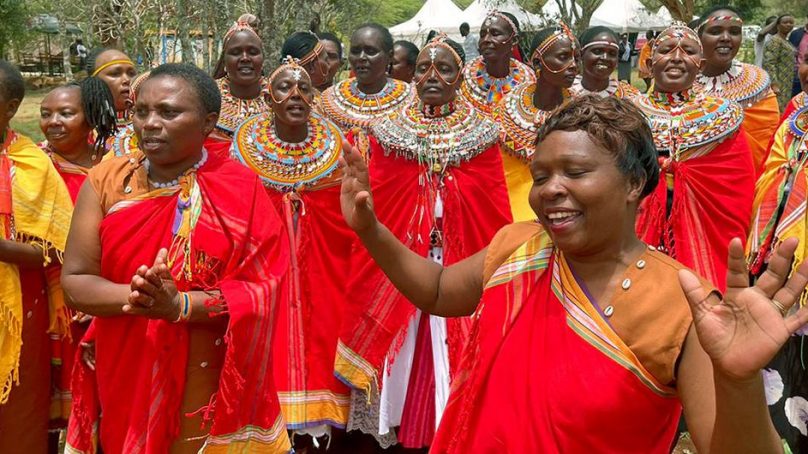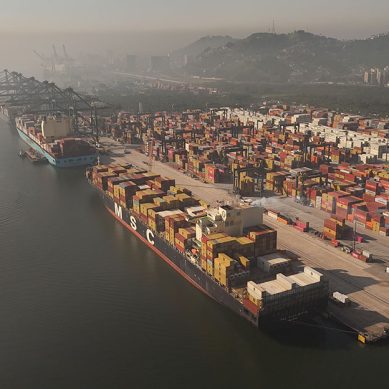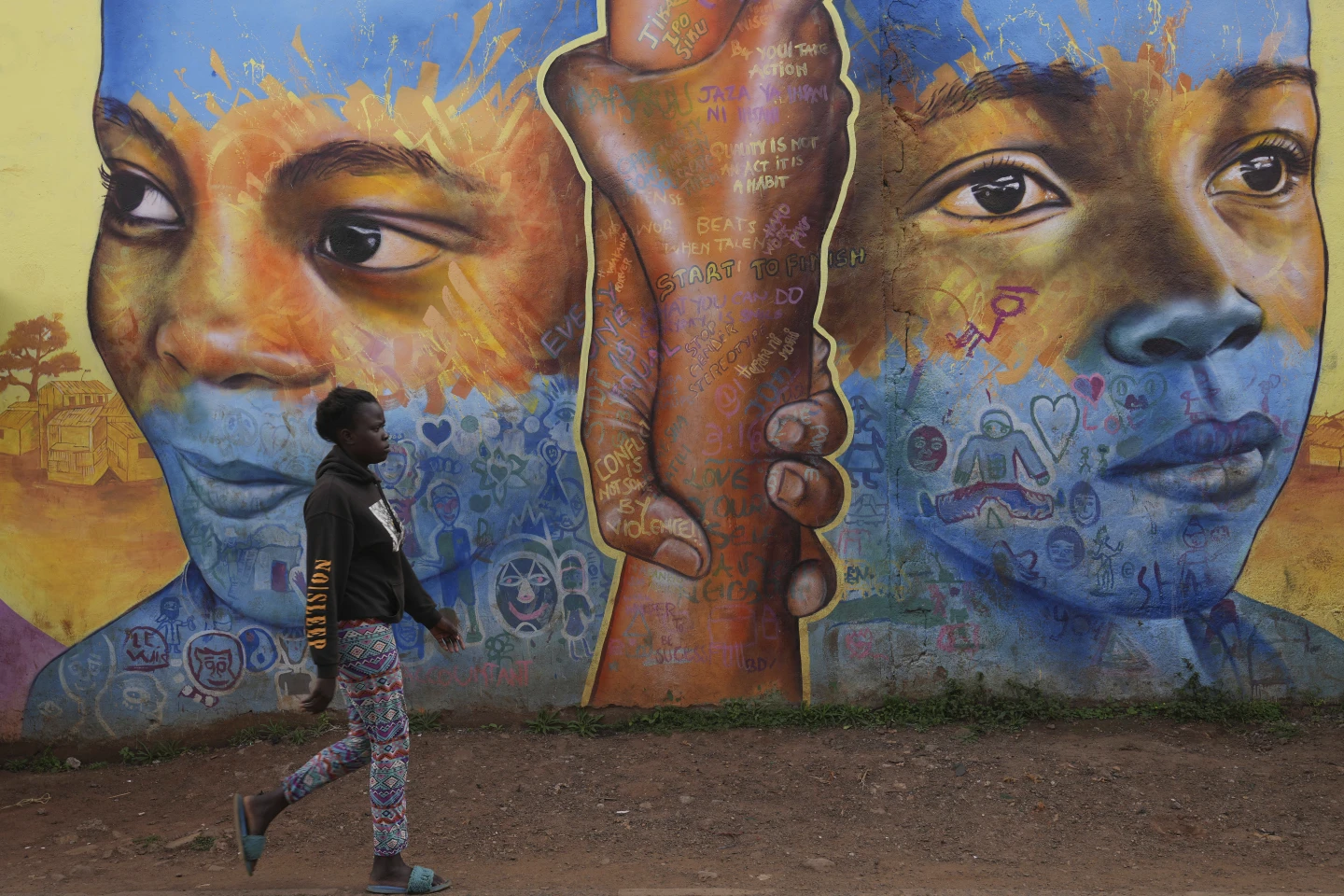
People take part in celebrations to mark the signing of declarations by councils of elders in Kenya’s Samburu and Mt Elgon regions to end the practice of female genital mutilation.
Courtesy of State Department for Gender and Affirmative Action, Kenya People take part in celebrations to mark the signing of declarations by councils of elders in Kenya’s Samburu and Mt Elgon regions to end the practice of female genital mutilation.
The UN chief on Friday launched a plan to boost empowerment of women and girls around the world, unveiling details at a meeting commemorating International Women’s Day on the theme of investing in women and girls.
“Equality is overdue; to achieve it, we must match rhetoric with resources,” said UN Secretary-General António Guterres. “We must invest in women and girls, turbocharge progress and build a better world for us all.”
His new UN System-Wide Gender Equality Acceleration Plan “commits to placing women and girls at the centre of our work across the board”.
“We will support governments around the world to design and implement policies, budgets and investments that respond to the needs of women and girls.”
The new plan comes against a global backlash against women’s rights that is threatening and sometimes reversing progress in developing and developed countries alike, he said, pointing to such egregious examples as Afghanistan’s gender-based restrictions on school and work outside the home and The Gambia’s consideration of legalising the harmful practice of female genital mutilation.
“The global crises we face are hitting women and girls hardest, from poverty and hunger to climate disasters, war and terror,” he said.
Over the past year, horrific reports on the impact of conflict which effects women and girls around the world have emerged, from testimonies of rape and trafficking in Sudan to recent reports on sexual violence during the ongoing Israel-Palestine conflict.
On the latter crisis, he highlighted a report by his Special Representative on Sexual Violence in Conflict, Pramila Patten, on sexual violence and sexualised torture during the Hamas terror attacks in Israel, and reports of sexual violence against Palestinian detainees at a time when maternity services are crumbling in war-torn Gaza, where women and children make up the majority of the over 100,000 now killed and injured.
Amid displacement and bombardment, more deliveries of care for women and girls is urgently needed, according to UNRWA, which provides hygiene kits at shelters like this one.
However, targeted programmes and quotas may be required to tackle “baked-in bias” and dismantle obstacles to equality, Mr Guterres said, urging member-states at the forthcoming Summit of the Future in September to support proposals for metrics that go beyond gross domestic product (GDP).
GDP disregards domestic labour carried out by billions of women while complementary metrics provide a more comprehensive and balanced picture, he explained. In addition, resolving gender bias in poverty is critical, he added.
“At our current rate of change, full legal equality for women is some 300 years away,” as is the end of child marriage, the UN chief said.
By 2030, over 340 million women and girls will still be living in extreme poverty, some 18 million more than men and boys, unless action is taken now.
“That is an insult to women and girls, and a brake on all our efforts to build a better world,” he said. “We must drastically up the pace of change.”
Highlighting three priority areas for action to make investments in women and girls a reality, the Secretary-General said the first step is urgently increasing affordable, long-term finance for sustainable development.
The second step requires governments to prioritise equality for women and girls through such efforts as his newly launched plan and the final action area is to increase the number of women in leadership positions, which can help to drive investment in policies and programmes that meet the needs of needs of women and girls.
- A Tell report l











